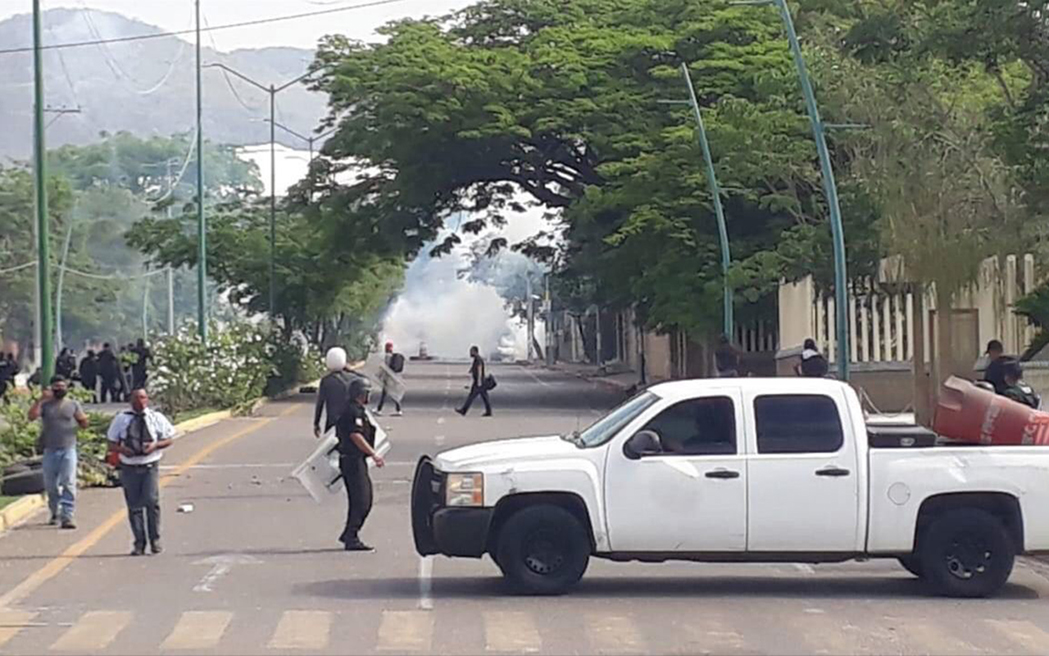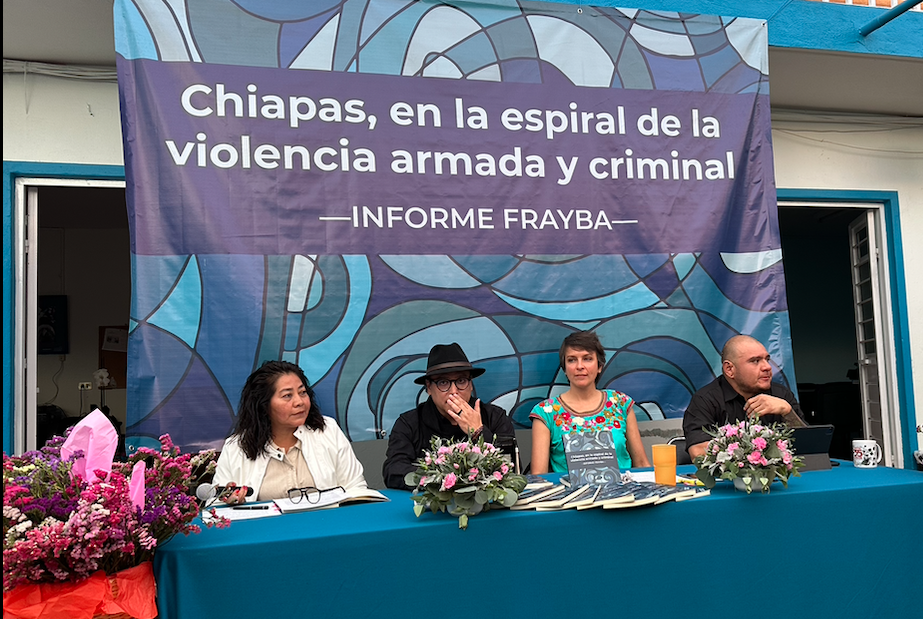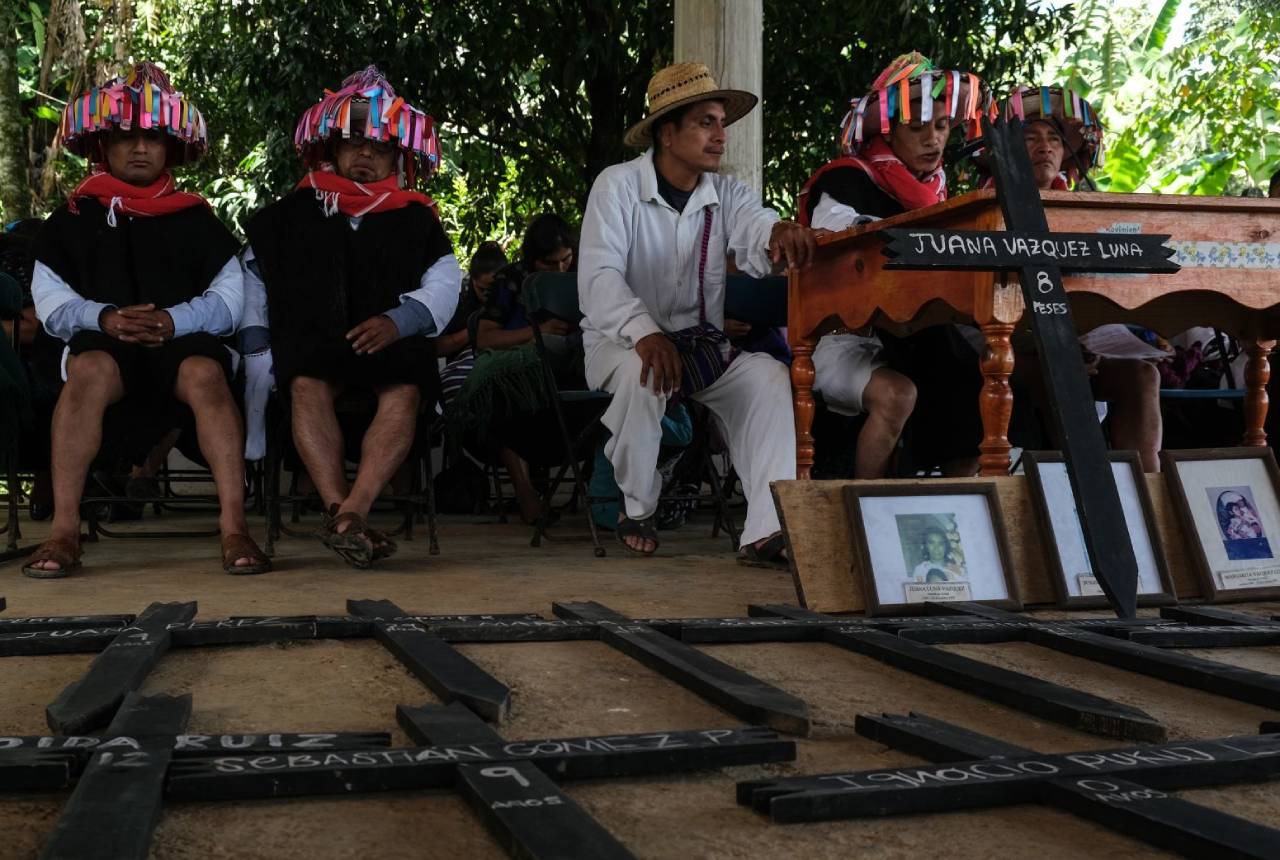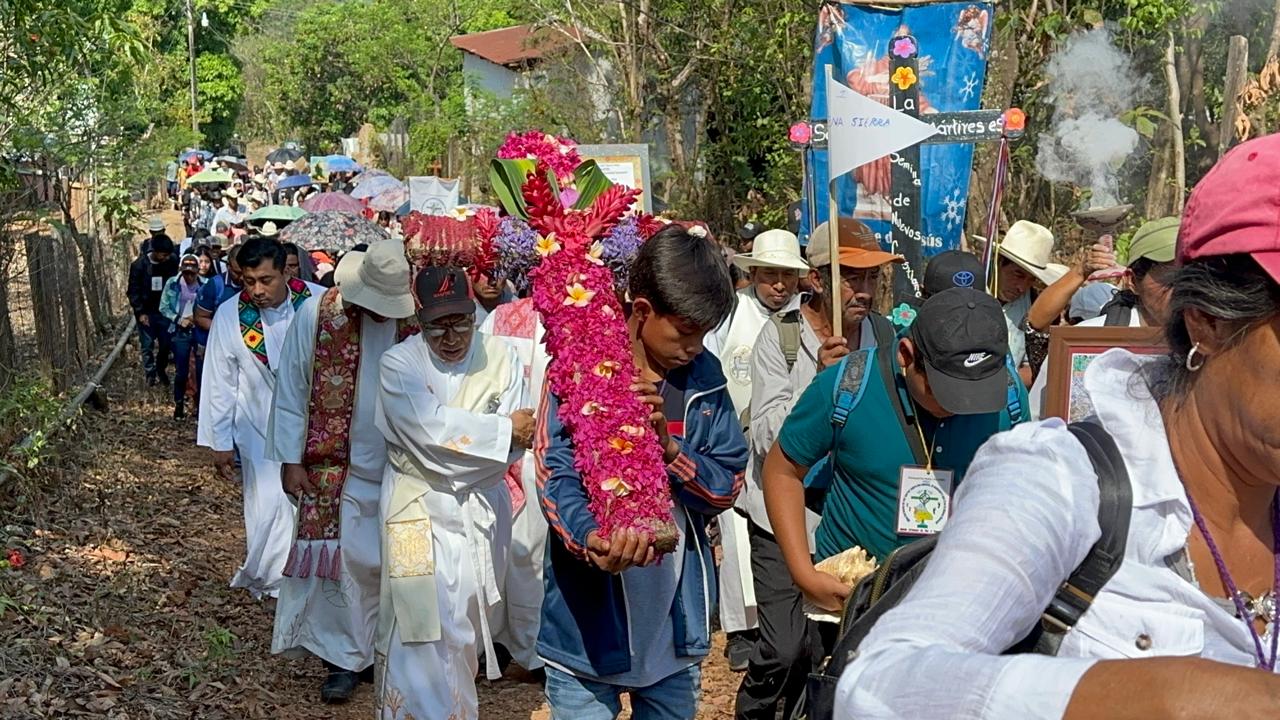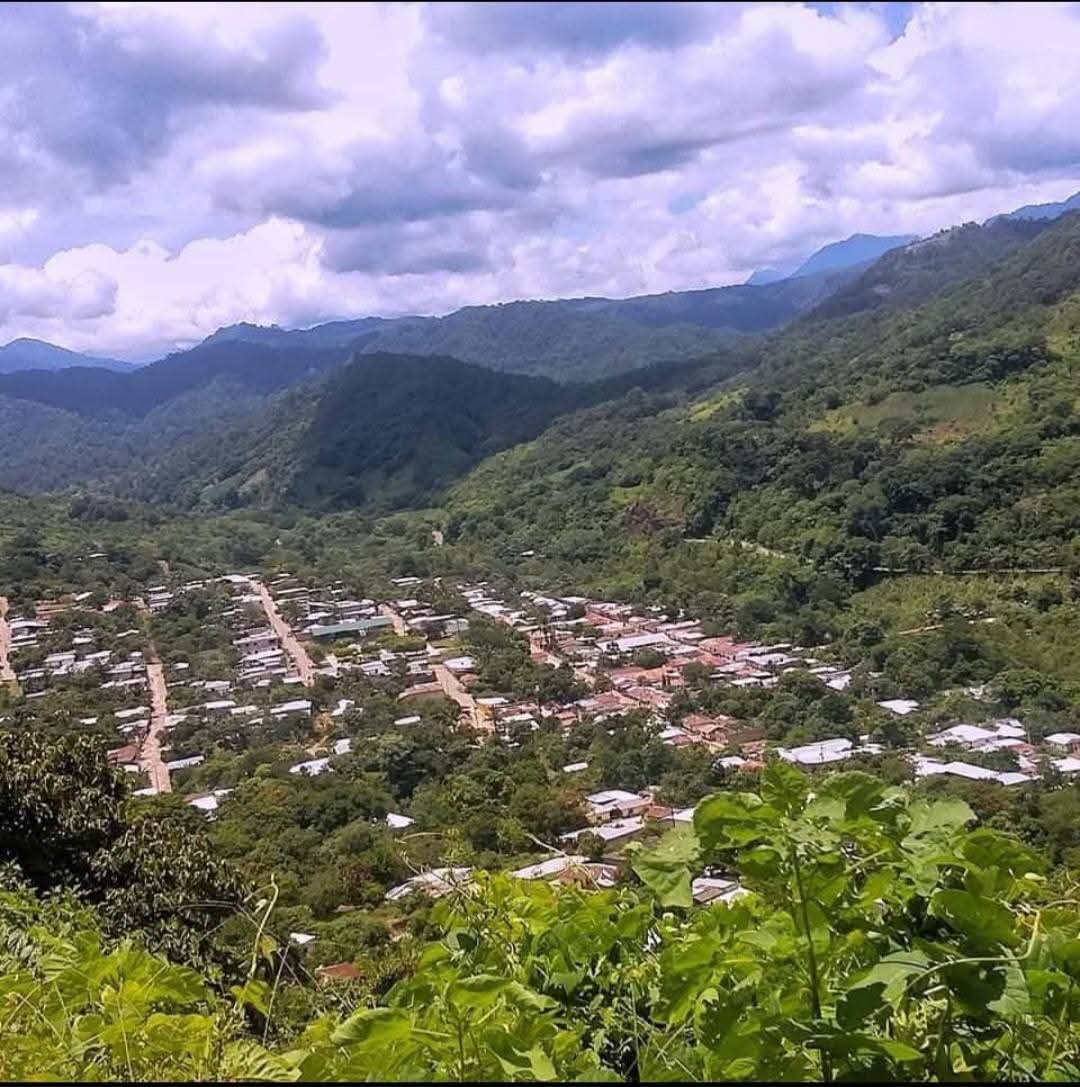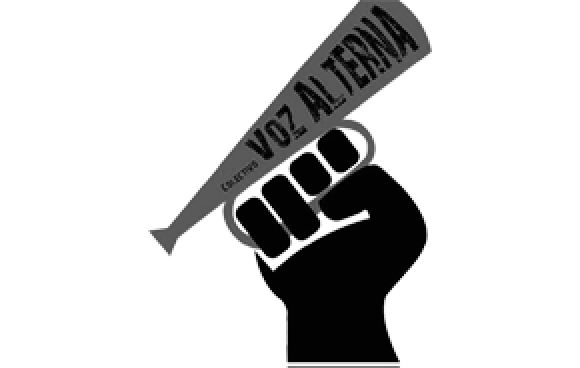State police cleared and detained students from the Rural Normal School of Mactumactzá in Chiapas demanding in-person entry exams. The 95 detained students face charges for rioting, gang associations, violent robbery, damages and attacks on communication lines. Family members, students, and teachers marched to demand the students be freed.
Text: Texto: Ángeles Mariscal & Isaín Mandujano / Chiapas Paralelo & Alejandro Ruiz / Pie de Página, originally published May 18, 2021 (updated May 19, 2021).
Photo: Cuartoscuro
Translation: Elysse DaVega
CHIAPAS–Around 500 students enrolled in a teacher training program (a normal school), teachers and parents protested before the Chiapas prosecutor’s office (FGE) to demand freedom for 95 youth detained and charged by state police for rioting, gang membership, violent robbery, damage, and attacks on communication lines.
After a more than two-hour march starting from the Normal Rural School of Mactumatzá and stretching several kilometers over the Libramiento Norte of the state capital of Tuxtla Gutiérrez, the human chain arrived at the prosecutor’s office. They positioned themselves at the main entry to the building, where they proceeded to hold a demonstration.
The FGE reported that an investigation has been opened by both the Central and Adolescent Prosecution Offices on charges of rioting, gang associations, violent robbery, damage, and attacks on communication lines due to the events that occurred at the Chiapa de Corzo-San Cristóbal de Las Casas toll booth, where the students were detained.
On Tuesday morning, 500 riot cops swarmed onto the scene in an operation to remove the students. They were on their seventh consecutive day of protest to the Chiapas government’s decision that entry exams for the 2021-2022 school year be held in person.
The students contend that poor internet access in their communities along with the difficulties in applying to the school placed them at a disadvantage.
The pandemic has widened the digital gap and inequality existing between those who have access to resources and tools to take on new educational methods brought on by the pandemic, and those who don’t.
Normalist students are among the latter. They are young people with scarce resources who are from rural and Indigenous áreas. They have little to no access to computers and internet in their communities, resources that are now necessary in order to take entry exams.
Last year, the Mexican National Institute of Geography and Statistics (Inegi) released statistics for World Internet Day, celebrated on May 17. Chiapas was in last place in the number of homes with internet and users with cell phones.
The Secretary of Education only accepted 6 out of the 32 candidates to the Normal Rural School of Mactumactzá in 2021; that is, less than 20 percent of those for whom the school, which offers food and a roof over their heads, is the only option.
For them and their mothers and fathers, almost all of whom work in the fields, being able to afford living accommodations, food, transport and an education is impossible. In Chiapas, seven out of every 10 people live in poverty.
This, combined with the fact that Mexico intends to bring educational projects to the standards dictated by the Organization for Economic Cooperation and Development, which is aligned with the requirements of the western capitalist market system, these rural youth are given little to no space. The budget for their schools is gradually declining.
In this scenario, for the normalist youth, their yearly fight is for budgeting, enrollment, and for the permanence and survival of the school. Every year they take to the streets, blocking highways and city entrances in a desperate fight to make themselves heard and retain their right to study. This year was no exception.
The removal
The students were forcibly removed on May 18, while protesting at a toll booth on the highway that leads to the state’s most Indigenous area. In the 500-officer operation, 74 normalist women and 21 normalist men were detained.
The student group had been publicly protesting since May 11, blocking entrances to the capital of Tuxtla Gutiérrez, to pressure educational authorities to comply with their demands.
In the morning, the highway toll booth connecting Tuxtla and San Cristóbal de Las Casas was closed and blocked from the city’s west entryway.
To eject them from these areas, riot police sprayed tear gas and detained 95 students. Those who escaped the operation took refuge inside the school.
«I got to Macumatzá at 11am to support the kids,» said professor Javier Saavedra, member of Section VII Executive Committee of the National Coordinator of Educational Workers. «There was [tear] gas everywhere, it smelled so strong. I think it was because the police had been shooting previously. Then the police went inside the school, started shooting, and that’s when the fire started.»
Chiapas state prosecutors reported 95 arrests. The normalists held a demonstration outside of the office to demand proof that their classmates were alive as well as the immediate freeing of those detained.
During a press conference in the school, the students reported that their female classmates were being sexually abused. «Just a few of us escaped. Our female classmates are missing, we haven’t heard anything from them. The only thing we’ve heard is that they’re assaulting them,» one student said, without going into further detail.
Hours after the operation to remove them from the streets, the students warned:
«Those detained are children of the social organizations of Chenalhó, Oxchuc, Chamula, Zinacantán and Comalapa. If the government doesn’t set our classmates free by the end of the day, they should expect a revolution because they messed with the children of rural farm workers. They messed with the children of revolutionaries.»
Spokesperson.
Braulio is a student at the Normal Rural School of Mactumactzá. He assures that the conflict’s origin stems from the failure of Rosa Aidé Dominguez Ochoa’s, the Secretary of Education of Chiapas, to comply with their agreements.
«We laid out agreements through a negotiation process on April 12, and we agreed that the entry exam would be in-person. This was finalized in writing, but then we saw that they weren’t respecting these agreements and decided to increase pressure,» said Braulio in an interview.
For the students of Mactumactzá, having the entry exam online would prevent peasant and Indigenous students from accessing their right to education. Online testing doesn’t take into account the reality that hundreds of communities face in the state of Chiapas.
«Last year they did the exam online,» Braulio continued, «and it excluded a lot of students; not all of us can afford to buy a tablet, computer, or wifi. I have to wonder how it’s possible that now that we’ve lifted COVID-19 restrictions, they allow elections, but not entry exams.»
The normalists held a press conference outside the government buildings to raise awareness about abuses against them.
«That press conference was on May 12. We called on the media to listen to our demands. But in the moment we realized that there were people on the roof of the government building throwing tear gas at us, and some classmates began to defend themselves in response. They were repressing us,» Braulio added.
Several sections of the National Coordinator of Educational Workers condemned the aggressions perpetrated by Rutilio Escandón Cadenas’ government. They say they hold him and the Education Secretary responsible for any physical and/or psychological aggression towards the detained students as well as the whereabouts of the 200 students that fled the repression.
The Benito Juárez scholarship
In turn, the Chiapas government announced via press release that «with the purpose of clearing up the facts and defining responsibilities,» the detained persons were at the Attorney General’s disposal.
The press release added that the students had «two vehicles transporting explosives (fireworks used during traditional celebration),» and four buses from different businesses, one of these being a PEMEX bus filled up with diesel.
In regard to the students’ demands, the government said the Mactumactzá school has received $4,539,800 pesos this year, between federal and state contributions. In total, in 2021, they say students will receive monthly allowances for expenses that by the end of the year will total $35.5 million pesos.
The Chiapas government noted that there are 487 students enrolled in the educational center that receive food, uniforms, and the Benito Juárez scholarship.
They said nothing in regard to the in-person entry exam that the normalists are demanding.
Since this article was published the detained students have been granted conditional release.
This report was originally Published by Chiapas Paralelo, which is part of the Media Alliance organized by Red de Periodistas de a Pie. You can read the original here.
Ángeles Mariscal is an independent journalist and founder of the Chiapas Paralelo portal, as well as a collaborator with CNN México and En Financiero. She believes everyone should have access to the conditions to live a dignified home where they are born, and the right to migrate. That’s the perspective from which she covers migration.
Alejandro Ruiz is an independent journalist based in Querétaro. He believes in the stories that allow us to open spaces of reflection, discussion and creative construction, in the belief that other worlds are possible if we build them from below.
Ayúdanos a sostener un periodismo ético y responsable, que sirva para construir mejores sociedades. Patrocina una historia y forma parte de nuestra comunidad.
Dona

